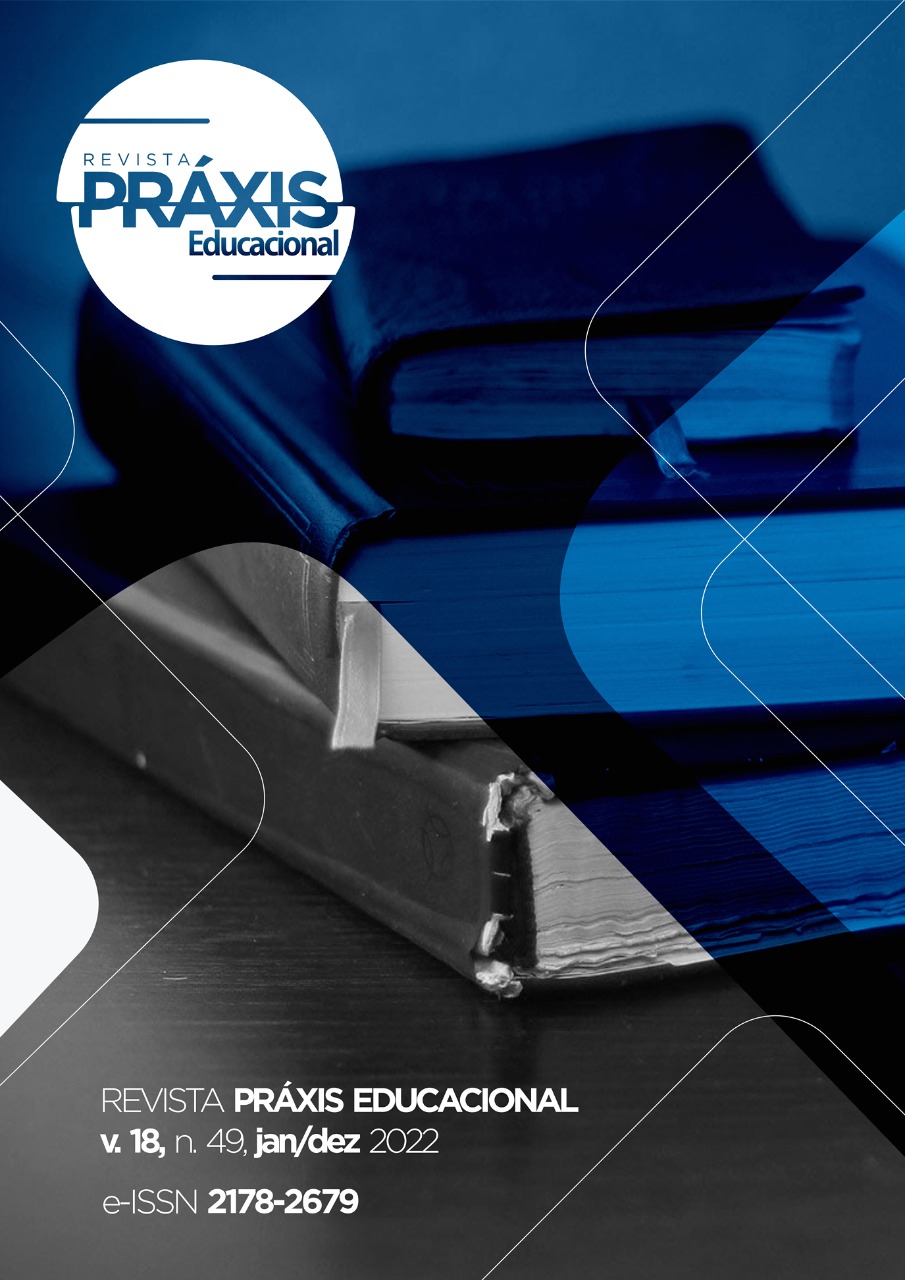The spirit of the valley in the planetary decoloniality: wide door in the recivilization of knowledge in education
DOI:
https://doi.org/10.22481/praxisedu.v18i49.11270Keywords:
spirit of the valley, Edgar Morin, educationAbstract
The spirit of the valley represents the opening that entails all the opulences of human knowledge, in which the centenary, the firefly Edgar Morín in 101 years of life continues to shine and in the creation of his works. The deep inclusion of planetary decoloniality is the wide door of the spirit of the valley that encourages us to become more complex and complex in the light of complexity in any of its meanings: worldview, theory or transmethodology. Under this opening in the line of research: planetary decoloniality-complexity in re-linkage, we base the spirit of the valley on planetary decoloniality as the wide door in the recivilization of knowledge in education, in life, in the human being in general. The comprehensive ecosophical and diatopical hermeneutics was carried out with the transmethod at the moments: analytical, empirical and propositional. In the propositive moment in two rhizomes, it is concluded that: every human being must seek wisdom as the maximum formation; education should foster deep, high-level metacognitive thinking. The works of Edgar Morín rescue the spirit of the valley, as a satire of love that says that within us there is a potential to develop; using all our complex conformation: nature-body-mind-soul-spirit-God. If we become aware and aware that it is urgent to de-link and re-link to the problems of the planet, it incites us to a radical change in teaching, in education, let us return to the Freirian legacy, to make our harsh reality more complex, empower our students to seek their release.
Downloads
References
ARCE, Marla. Caminar un nuevo horizonte de sentido histórico: defensa de la vida tierra, (des)colonialidad del tiempo y del saber en las resistencias ancestrales de Nuestra América. Utopía y Praxis Latinoamericana, Maracaibo, v. 25, n. 91, pp. 150-159, 2020. Disponible en: https://www.redalyc.org/journal/279/27965041016/html/ consultado el: 3 de agosto 2022
BAUDRILLARD, Jean; EDGAR, Morín. La violencia del mundo. Buenos Aires: Libros de: Zorzal, 2003.
BÍBLIA, La. Sociedades Bíblicas Unidas. Santa Bíblia. Caracas: Versión Reina-Valera, 1960.
CASTRO-GÓMEZ, Santiago. Decolonizar la Universidad. La hybris del punto cero y el diálogo de saberes. En: Santiago Castro y Ramón Grosfoguel (eds.), El giro decolonial. Reflexiones para una diversidad epistémica más allá del capitalismo global. pp. 79-91. Bogotá: IESCO-Pensar-Siglo del Hombre, 2007.
CASTRO-GÓMEZ, Santiago; GROSFOGUEL, Ramón. El Giro Decolonial, Reflexiones para una diversidad epistémica más allá del capitalismo global. Bogotá: Siglo del Hombre Editores, 2007.
CAPRA, Fritjof. El Tao de la física. Malaga: Editorial Sirio, 2004.
DELUEZE, Guilles; GUATTARI, Felix. Mil mesetas. Capitalismo y esquizofrenia. Valencia: Pre-textos, 2004.
DUSSEL, Enrique. Europa, Modernidad Y Eurocentrismo. Edgardo Lander, ed. La Colonialidad Del Saber: Eurocentrismo Y Ciencias Sociales: Perspectivas Latinoamericanas /. Buenos Aires, Argentina: CLACSO, 2000.
LAO-TSE, Wade-Giles. Tao Te King ó El libro del Camino y la Virtud, 2020. Disponible en: https://ministeriodeeducacion.gob.do/docs/biblioteca-virtual/Yy0m-lao-tse-el-libro-del-camino-y-la-virtudpdf.pdf Consultado el: 16 juli. 2022
MALDONADO-TORRES, Nelson. Sobre la colonialidad el ser: contribuciones al desarrollo de un concepto. En El giro decolonial. Reflexiones para una diversidad epistémica más allá del capitalismo global, editado por Santiago Castro Gómez y Ramón Grosfoguel. Bogotá: IESCO, 2007
MORÍN, Edgar. Ciencia con conciencia. Barcelona: Anthropos, 1984.
MORÍN, Edgar. El Método. I. La naturaleza de la naturaleza. Madrid: UNESCO, 1999.
MORÍN, Edgar. Lecciones de un siglo de vida. Barcelona: Ediciones Paidós, 2021.
MUJICA GARCIA, Juan Antonio; FABELO CORZO, José Ramón. La colonialidad del ser: la infravaloración de la vida humana en el sur-global. Estud. filos. práct. hist. ideas, Mendoza , v. 21, n. 2, p. 1-9, dic. 2019. Disponible en http://www.scielo.org.ar/scielo.php?script=sci_arttext&pid=S1851-94902019000200004&lng=es&nrm=iso. Consultado el: 16 jul. 2022
ORTIZ, Alexander; ARIAS, María. Hacer decolonial: desobedecer a la metodología de investigación. Hallazgos, Bogotá, vol. 16, núm. 31, pp. 1-20, 2019. DOI: 10.15332/s1794-3841.2019.0031.06
RODRIGUEZ, Milagros Elena. Re-ligar como práctica emergente del pensamiento filosófico transmoderno. Revista Orinoco Pensamiento y Praxis, Ciudad Bolívar, v.07, n.11, p.13-35, 2019. DOI: 10.5281/zenodo.3709211
RODRÍGUEZ, Milagros Elena. La investigación acción participativa compleja Como transmétodo rizomático transcomplejo en la transmodernidad. Revista Internacional de Formação de Professores (RIFP), Itapetininga, v. 5, e020026, p. 1-27, 2020a.
RODRÍGUEZ, Milagros Elena. La hermenéutica comprensiva, ecosófica y diatópica. Un transmétodo rizomático en la transmodernidad. Perspectivas Metodológicas, Buenos Aires, v.20, p.1-15, 2020b. DOI: 10.18294/pm.2020.2829
RODRÍGUEZ, Milagros Elena. (2021a). Los transmétodos: insurrección indisciplinar a los métodos de investigación. Revista Internacional de Formação de Professores (RIFP), Itapetininga, v. 6, e021020, p. 1-19, 2021a.
RODRÍGUEZ, Milagros Elena. Somos naturaliza en la Tierra-patria: visiones decoloniales planetaria-complejas. Revista Educar Mais, Pelotas, v.6, p. 209 – 220, 2022a. DOI: 10.15536/reducarmais.6.2022.2723
RODRIGUEZ, Milagros Elena. (2022b). La decolonialidad planetaria como apodíctica de la transcomplejidad. RECIPEB: Revista Científico-Pedagógica Do Bié, Bié, v.1, n.1, p.43–57, 2022b. DOI: 10.5281/zenodo.6598510
SANTOS, Boaventura. Crítica de la razón indolente. Contra el desperdicio de la experiencia. Bilbao: Desclée de Brouwer, 2003.
Downloads
Published
How to Cite
Issue
Section
License
Copyright (c) 2022 Práxis Educacional

This work is licensed under a Creative Commons Attribution-ShareAlike 4.0 International License.
Você é livre para:
Compartilhar - copia e redistribui o material em qualquer meio ou formato; Adapte - remixe, transforme e construa a partir do material para qualquer propósito, mesmo comercialmente. Esta licença é aceitável para Obras Culturais Livres. O licenciante não pode revogar essas liberdades, desde que você siga os termos da licença.
Sob os seguintes termos:
Atribuição - você deve dar o crédito apropriado, fornecer um link para a licença e indicar se alguma alteração foi feita. Você pode fazer isso de qualquer maneira razoável, mas não de uma forma que sugira que você ou seu uso seja aprovado pelo licenciante.
Não há restrições adicionais - Você não pode aplicar termos legais ou medidas tecnológicas que restrinjam legalmente outros para fazer qualquer uso permitido pela licença.












